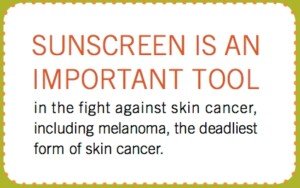Stage 4 melanoma has a very grim prognosis, so if you have a stage 2 melanoma, you may be wondering how long it takes for it to progress to a stage 4 status.
How well can this question even be answered?
“This is a very difficult question to answer, as there will never be a study examining how long it will take a known melanoma to spread in some person’s body,” begins Adam J. Mamelak, MD, a board certified dermatologist and founder of Sanova Dermatology in Austin, TX.
“This is unethical and dangerous if not deadly for the person with the skin cancer.”
Hopefully, you already knew that, but what about some way to extrapolate existing data to come up with some degree of answer?
Dr. Mamelak explains, “Furthermore, the type of melanoma dictates the speed in which it progresses.
“For example, lentigo maligna melanoma notoriously grows slowly over years with a long radial growth phase (i.e., it grows along the surface of the skin before invading into the depth of the skin and body).

Lentigo maligna melanoma. Omar Bari, Philip R. Cohen, CreativeCommons
“Nodular melanoma has a short radial growth phase and fast vertical growth phase (i.e., it grows deep quickly over weeks and spreads to other areas of the body).

Nodular melanoma. Hans677/CreativeCommons
“There are some indications that some melanoma can advance stages over a 1-2 month time period.
“However, the best way to answer this question may come from delaying treatment.
“A 2017 study published in the Journal of the American Academy of Dermatology looked at the impact of melanoma surgical timing on survival.”
A Very Interesting Study of Melanoma Stage 1, 2 and 3
• From 2004 to 2012, 150,000 adults with stage 1, 2 and 3 were studied.
• For those who waited more than 90 days (after diagnosis) to get surgical treatment, survival rate decreased – regardless of disease stage.
• For stage 1 melanoma, a surgery delay beyond the first 29 days had a negative impact on overall survival.
• For stage 1 disease, patients were five percent more likely to die if they received treatment between 30 and 59 days.
• Between 60-89 days? The mortality rate was 16 percent.
• For 91-120 days it was 29 percent.
• Beyond four months it was 41 percent.
From these results, researchers infer that the ideal timing for treatment is fewer than 30 days from diagnosis.
So we know that delaying treatment is very strongly associated with mortality rate from this cancer – and that’s with stage 1.
You can imagine the jump in numbers if a diagnosed stage 2 or especially 4 melanoma were investigated in a similar fashion.
A study such as this is the closest that we can come to determining the answer to “How long does it take for stage 2 melanoma to progress to stage 4.”
If you’ve been diagnosed with stage 2 disease, DO NOT PUT OFF TREATMENT.
If this means cancelling a much-anticipated vacation, then this is what you must do.
The vacation can wait. Your lungs and brain can’t. The first two organs that melanoma usually spreads to are the lungs and brain!
In fact, if your diagnosis is stage 1, your treatment should come first, before any vacations or anything else.
Ideally, you’ll want to prevent ever developing a stage 2, let alone stage 4, melanoma in the first place.
Catching Melanoma Very Early
• Examine your skin, not just moles, every month, including inside your belly button, between toes, the bottoms of your feet, eyelids and inside ears.
• Hardly in the sun? Guess what: The tumor can arise in people who were never sun worshippers or otherwise never spent too much time in the sun. Nevertheless, practice good sun protection measures.

• Stage 0 melanoma has a five-year survival rate of 99 percent.
• Stage 4 melanoma has a five-year survival rate of 25 percent.
• These figures are the averages for all types of this cancer.
Pictures of Melanoma that You’ve Probably Never Seen
Look over the images. Some are not what you’ll be expecting.

CDC, Carl Washington, MD, Emory Univ. School of Medicine, Mona Saraiya, MD, MPH


 Dr. Mamelak focuses on the full breadth of dermatologic care, from cosmetic skin solutions to advanced skin cancer removal. He’s founder of the Austin Mohs Surgery Center, which is dedicated to the treatment and management of skin cancer.
Dr. Mamelak focuses on the full breadth of dermatologic care, from cosmetic skin solutions to advanced skin cancer removal. He’s founder of the Austin Mohs Surgery Center, which is dedicated to the treatment and management of skin cancer.
 Lorra Garrick has been covering medical, fitness and cybersecurity topics for many years, having written thousands of articles for print magazines and websites, including as a ghostwriter. She’s also a former ACE-certified personal trainer.
Lorra Garrick has been covering medical, fitness and cybersecurity topics for many years, having written thousands of articles for print magazines and websites, including as a ghostwriter. She’s also a former ACE-certified personal trainer.
.


























